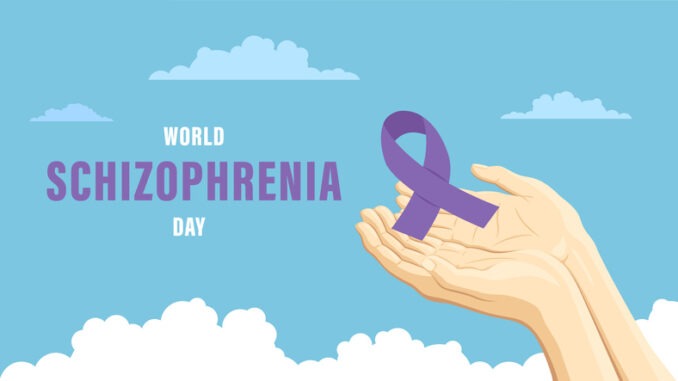
World Schizophrenia Day is celebrated each year on 24th of May to honour Dr Phillippe Pinel who did much for the treatment and management of this mental illness. It is an opportunity to become more aware of schizophrenia – an illness that can significantly impact a patient’s life
Schizophrenia is a severe, long-term, mental health condition which causes a range of different psychological symptoms. Doctors often describe schizophrenia as a type of psychosis; this means the person may not always be able to distinguish their thoughts and ideas from reality.
Symptoms of schizophrenia
Many experiences and behaviours can be part of schizophrenia. They can start suddenly, or they might develop gradually, over time. Each person’s experience is unique. A doctor might suggest someone has schizophrenia if they experience some of the following:
- a lack of interest in things;
- feeling disconnected from their emotions;
- difficulty concentrating;
- wanting to avoid people;
- hallucinations, such as hearing voices, or seeing things that others don’t;
- delusions (strong beliefs that others don’t share), including paranoid delusions;
- disorganised thinking and speech;
- not wanting to look after themselves.
Issues with the term
Some people argue that, because there isn’t a clear definition of schizophrenia, doctors shouldn’t use this term at all – especially because this diagnosis can feel stigmatising. Others think that the name of the condition doesn’t matter – what matters more is finding ways to help people with their individual symptoms and needs.
Conditions with similar symptoms
There are also several other conditions that share many of the same symptoms as schizophrenia. These include:
- schizoaffective disorder;
- some types of personality disorders (specifically schizotypal and schizoid personality disorder);
- bipolar disorder.
It’s also possible to experience an episode of psychosis (one of the most common symptoms of schizophrenia) without having any particular condition.
Misconceptions about schizophrenia
There is a lot of misinformation in the media about schizophrenia. Stories in the news and on TV shows are often sensationalised and misleading. The truth is:
- It does not mean someone has a ‘split personality’ – that sort of experience is more associated with dissociative identity disorder.
- It does not mean that someone is dangerous or violent – most people with schizophrenia do not commit violent crimes. Some research suggests that the risk may be slightly higher among people who have this diagnosis than people who don’t, but it’s not clear that schizophrenia is the cause. Evidence shows that factors like drug and alcohol misuse are far more likely to play a part in violence. People with schizophrenia are more likely to be victims of crime – or to harm themselves – than to harm someone else.
What causes schizophrenia?
Schizophrenia can have a range of causes; there is a lot that researchers still don’t know. It is likely to be caused by a combination of genetic, personal and environmental factors. These factors will be different for everybody but may include:
What treatments are there for schizophrenia?
Experiences of schizophrenia will vary from person-to-person, as will the treatments that work best for them. Some things that may help include:
Many people recover from schizophrenia, although they may have periods when symptoms return (relapses). Support and treatment can help reduce the impact the condition has on daily life.
Living with schizophrenia
If schizophrenia is well-managed it’s possible to reduce the chance of severe relapses. This can include:
- recognising the signs of an acute episode;
- taking medicine as prescribed;
- talking to others about the condition.
There are many charities and support groups offering help and advice on living with schizophrenia. Most people find it comforting talking to others with a similar condition.


Be the first to comment